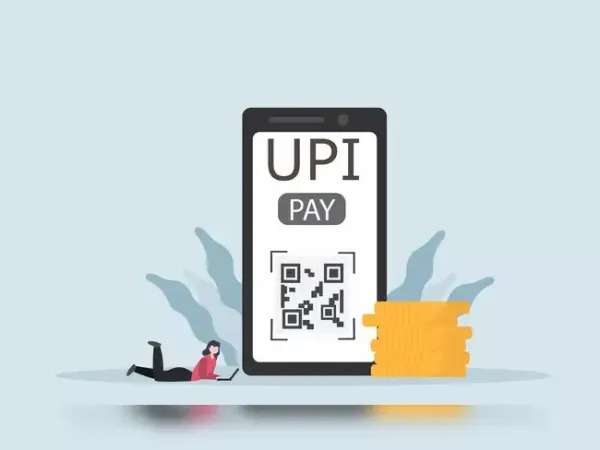As regulations tighten up around the digital payments ecosystem, scrutiny of the service providers on the popular Unified Payments Interface has gone up as well.
According to multiple people in the know, the National Payments Corporation of India (NPCI) has increased its scrutiny of third-party payment applications (TPAPs) run on the UPI platform. While the likes of PhonePe, Google Pay and Paytm are regularly audited by NPCI, new entrants onto the UPI are required to go through heightened background verifications before they can go live.
“Risk evaluation on the applicants seeking a TPAP licence has gone up manifold, and some of it is attributed to very early-stage players without much investments and scale managing to get the access to the UPI ecosystem in the initial years,” said the founder of a fintech startup in the know.
Currently around 30 UPI TPAPs are licensed by NPCI.
It takes 15-18 months now to get a TPAP authorisation after applying, according to the people cited above. It used to be much shorter a year back.
A senior banker in the know said on an average, the process should get completed within six months, but it gets delayed in cases where there are additional queries or doubts.
The overall scrutiny on the sector has gone up, with the payment aggregator guidelines bringing in a standard licensing regime around payments.
Paytm, the third largest UPI app, had failed to secure the payment aggregator licence in one go. The Reserve Bank of India had returned the application of Paytm’s subsidiary, Paytm Payment Services, to become a payment aggregator in 2022 citing non-adherence to foreign direct investment rules. It finally managed to get the approval in August 2025, after reapplying to the RBI.
“The government and the central bank want all such issues to be checked before providing access to the UPI ecosystem, almost along the lines of a payment aggregator licence,” said the founder of another Mumbai-based payments startup.
According to industry insiders ET spoke with, Mumbai-headquartered NPCI asks for all forms of details from the applicants. These include information about the investors and even the ultimate beneficial ownership, which means going all the way to the investors in the funds that have backed the applicant. The size of the company, credibility of the brand and its tech capabilities including data security systems are also looked into.
Initially it used to be a technical integration issue, back-end processing capabilities and such, but now it is also about sustainability of the business and credibility of the founders, the founder quoted above said.
Given that the UPI is a system where there is no direct revenue to be generated, NPCI wants participants who can invest for the long run, have a definite business plan and can launch new products on the platform as well.
“One of the criteria for the new players is that they have to go live with all the UPI product categories from the start; they cannot launch the core debit payment tool and go live with other products like wallets, UPI Circle, UPI Lite over a period of time,” said the first founder cited in the story.
While going live on the UPI is not an expensive proposition, given the resources and the team that needs to be deployed into the process, there is definitely a cost for the startups, and only those founders who need the service are ready to bear the charges.
“Also there is no set criteria for players to apply, so it involves a lot of back and forth through the application process, which increases timelines and increases cost from a business perspective as well,” said a senior fintech industry executive.
NPCI is also keen to attract TPAPs who can meaningfully invest and expand the UPI market pie, the executive said. Given the market share issue is still hanging around, NPCI wants the new entrants into the ecosystem to meaningfully transform the market and grab a sizable chunk of the volumes.
New UPI apps like Kiwi, Navi and Super.Money are entering the space with an ultimate aim of getting into quick credit. Also, credit-based UPI payments are revenue generating, thereby helping these businesses to achieve scale in a sustainable fashion.
All this comes at a time when the UPI has almost become the de-facto payment mode in the country. The payment system touched 20 billion transactions in September this year. PhonePe continues to be the largest UPI app with around 9 billion transactions, followed by Google Pay at 6.8 billion. Paytm processes more than a billion transactions per month, while Navi is around the 500 million range.
According to multiple people in the know, the National Payments Corporation of India (NPCI) has increased its scrutiny of third-party payment applications (TPAPs) run on the UPI platform. While the likes of PhonePe, Google Pay and Paytm are regularly audited by NPCI, new entrants onto the UPI are required to go through heightened background verifications before they can go live.
“Risk evaluation on the applicants seeking a TPAP licence has gone up manifold, and some of it is attributed to very early-stage players without much investments and scale managing to get the access to the UPI ecosystem in the initial years,” said the founder of a fintech startup in the know.
Currently around 30 UPI TPAPs are licensed by NPCI.
It takes 15-18 months now to get a TPAP authorisation after applying, according to the people cited above. It used to be much shorter a year back.
A senior banker in the know said on an average, the process should get completed within six months, but it gets delayed in cases where there are additional queries or doubts.
The overall scrutiny on the sector has gone up, with the payment aggregator guidelines bringing in a standard licensing regime around payments.
Paytm, the third largest UPI app, had failed to secure the payment aggregator licence in one go. The Reserve Bank of India had returned the application of Paytm’s subsidiary, Paytm Payment Services, to become a payment aggregator in 2022 citing non-adherence to foreign direct investment rules. It finally managed to get the approval in August 2025, after reapplying to the RBI.
“The government and the central bank want all such issues to be checked before providing access to the UPI ecosystem, almost along the lines of a payment aggregator licence,” said the founder of another Mumbai-based payments startup.
According to industry insiders ET spoke with, Mumbai-headquartered NPCI asks for all forms of details from the applicants. These include information about the investors and even the ultimate beneficial ownership, which means going all the way to the investors in the funds that have backed the applicant. The size of the company, credibility of the brand and its tech capabilities including data security systems are also looked into.
Initially it used to be a technical integration issue, back-end processing capabilities and such, but now it is also about sustainability of the business and credibility of the founders, the founder quoted above said.
Given that the UPI is a system where there is no direct revenue to be generated, NPCI wants participants who can invest for the long run, have a definite business plan and can launch new products on the platform as well.
“One of the criteria for the new players is that they have to go live with all the UPI product categories from the start; they cannot launch the core debit payment tool and go live with other products like wallets, UPI Circle, UPI Lite over a period of time,” said the first founder cited in the story.
While going live on the UPI is not an expensive proposition, given the resources and the team that needs to be deployed into the process, there is definitely a cost for the startups, and only those founders who need the service are ready to bear the charges.
“Also there is no set criteria for players to apply, so it involves a lot of back and forth through the application process, which increases timelines and increases cost from a business perspective as well,” said a senior fintech industry executive.
NPCI is also keen to attract TPAPs who can meaningfully invest and expand the UPI market pie, the executive said. Given the market share issue is still hanging around, NPCI wants the new entrants into the ecosystem to meaningfully transform the market and grab a sizable chunk of the volumes.
New UPI apps like Kiwi, Navi and Super.Money are entering the space with an ultimate aim of getting into quick credit. Also, credit-based UPI payments are revenue generating, thereby helping these businesses to achieve scale in a sustainable fashion.
All this comes at a time when the UPI has almost become the de-facto payment mode in the country. The payment system touched 20 billion transactions in September this year. PhonePe continues to be the largest UPI app with around 9 billion transactions, followed by Google Pay at 6.8 billion. Paytm processes more than a billion transactions per month, while Navi is around the 500 million range.








